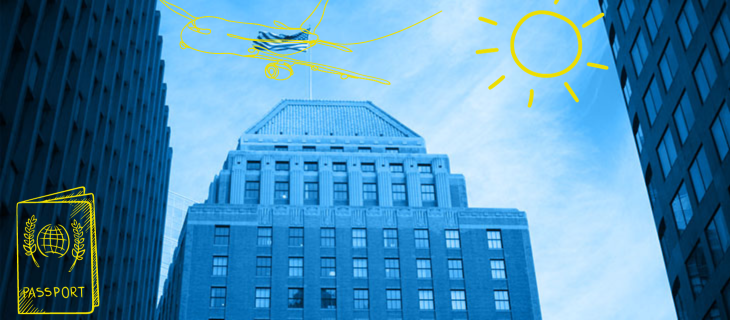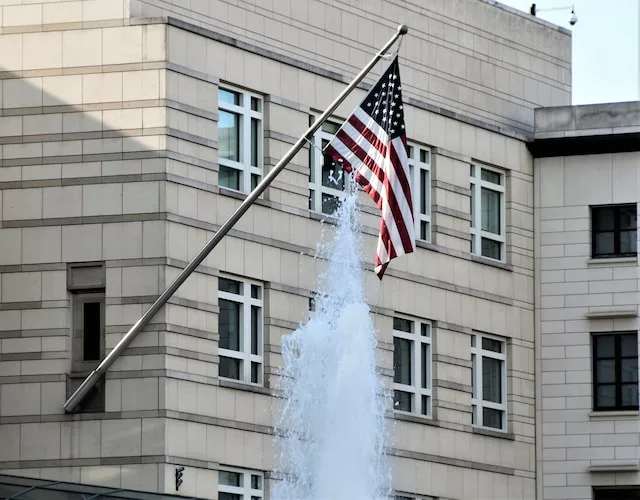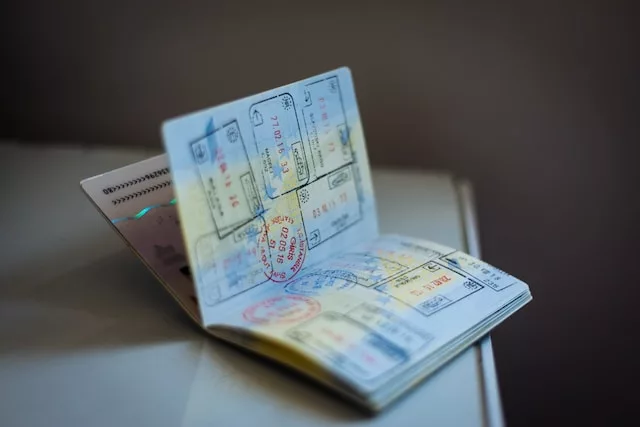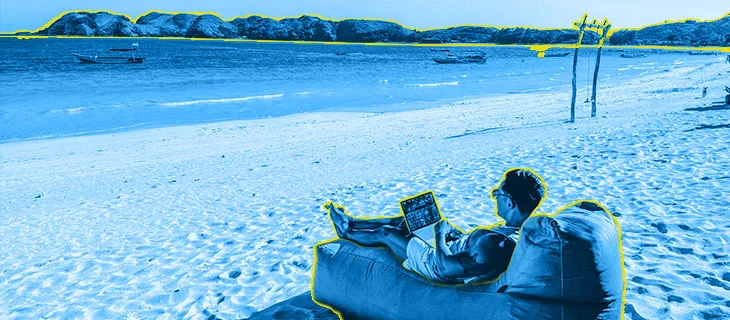Consulate vs. Embassy: Know the Difference for Visa Applications

When applying for a digital nomad visa to reside in another country while working remotely, you may be confused over the differences between a consulate vs. embassy.
While some digital nomad visas have online applications, others require applicants to visit the nearest consulate or embassy in their country of residence to submit their applications and attend a visa interview.
Nomads Embassy: The World’s First Embassy for Digital Nomads is here to clear up any misconceptions or confusion about the difference between consulate vs. embassy.
Our mission is to make the digital nomad visa application process as easy as possible, and sometimes, that means laying the foundation for what it is like to apply for a visa.
So, let’s dive into the details and the difference between a consulate vs. embassy.

What is an Embassy?
An embassy is an official and main diplomatic mission of a specific country in a foreign country’s capital or main city.
The embassy is the main reference point for maintaining relationships between the two countries and working together on economic and diplomatic missions. They also offer consular services, such as visas and passports, and provide services to citizens who are living abroad.
Traditionally, embassies mainly focus on political and diplomatic missions and situations. While they do offer consular services to citizens, embassies cater more towards government relations.

What is a Consulate?
A consulate is a smaller version of an embassy and focuses on services for visa applicants and citizens living or traveling abroad. They can help citizens abroad with legal situations, emergencies, notarizations, and passport renewals.
There are often a couple of consulates in one host country, along with a main embassy. For example, in Italy, there are consulates in Naples, Milan, and Florence, while the main embassy is in Rome.

Consulate vs. Embassy: What’s the Difference?
So, now that we have the definitions of both an embassy and a consulate, let’s dive deep into the differences between them.
While they may look exactly the same, they have different responsibilities that can overlap sometimes, different locations, and managing operators.
Locations
The main difference between a consulate vs. embassy is the location in a foreign country.
The embassy is typically in the host country’s capital city. For example, the French embassy is located in Athens, Greece, the capital.
Consulates, however, are located in other major cities throughout the host country. There can also be multiple consulates in one host country.
However, there will always be just one embassy in a host country.
You can easily find embassy and consulate locations online with this embassy finder.
Services
When comparing consulate vs. embassy, one of the main differences are the services they offer and their purpose.
Consulates have services that cater to its citizens who are living or traveling abroad in the host country. These services can include emergency assistance, repatriation, notarization, passport renewal, and document filing, such as birth, marriage, and death certificates.
They also offer visa services for citizens of the host country to travel abroad to the consulate’s country.
For example, a Portuguese consulate in the US will offer services for US citizens to apply for the Portugal digital nomad visa. And vice versa; a US consulate in Portugal will assist Portuguese citizens in applying for visas to live in the US.
An embassy, on the other hand, may offer these consular services, but the main focus is on diplomatic missions and relations with the government in the host country.
In essence, an embassy is much more politically involved. They may also host political and charitable events, meetings, and press conferences.
Operators
In a consulate, the main operator is either a consul general or consul. This government official oversees the operations of the consulate and ensures everything runs smoothly.
In an embassy, the main operator is an ambassador. They rank higher than a consul or consul general and are more focused on maintaining diplomatic relations with the host country’s government.

Where Do You Apply for a Visa?
We promised to help make the digital nomad visa application process easier. One way to do that is by determining where you must apply for your visa.
In most cases, you can apply for a visa at either an embassy or consulate. However, if the embassy does not offer visa services, then you must go to a consulate.
In some countries, such as the United States, there are consulates dedicated to specific districts. Depending on which district you reside in, you can only use the services of the specific consulate serving your district.
Now, it can get a bit tricky when your country of residence does not have an embassy or consulate belonging to the country where you wish to apply for a visa. In this case, you would have to travel to the closest embassy, which could be in the neighboring country.
For this reason, we highly recommend working with an immigration lawyer when applying for a digital nomad visa that requires you to visit an embassy or consulate.
Do You Always Have to Visit an Embassy or Consulate When Applying for a Digital Nomad Visa?
Fortunately, there are some digital nomad visas that do not require you to visit an embassy or consulate to apply.
These digital nomad visas have online applications, or you can apply for a residence permit while already in the country if your passport meets certain requirements. For example, the Malta digital nomad visa has an online application, and you’ll receive an answer within 30 days.

Easily Apply for a Digital Nomad Visa with Nomads Embassy
Are you ready to work remotely from your dream destination with a digital nomad visa?
Nomads Embassy: The World’s First Embassy for Digital Nomads is here to make the application and relocation process easier than ever!
We’ve partnered with hand-selected local immigration lawyers to assist our members with their visa applications. This includes helping you schedule your visa appointment with the correct consulate or embassy if necessary.
Request our free eligibility check to see which digital nomad visas you qualify for today to get started!
You may also enjoy

The most complex and time-consuming part of applying for a digital nomad visa is gathering all of the right documents. To help get you started and hopefully save some time,…
by Brittany

Taiwan will be the latest country in Asia to welcome remote workers officially by introducing the Taiwan digital nomad visa. In an effort to attract at least 10% of the…
by Brittany

As a remote worker traveling the world, you’ve likely heard about the more than 40 digital nomad visas available worldwide. They’ve piqued your interest, but what are the signs you…
by Brittany
